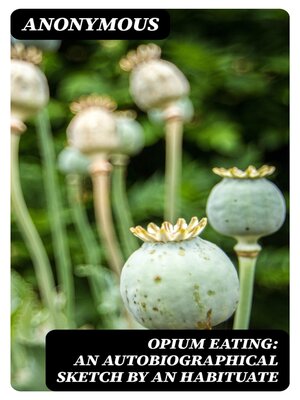
Sign up to save your library
With an OverDrive account, you can save your favorite libraries for at-a-glance information about availability. Find out more about OverDrive accounts.
Find this title in Libby, the library reading app by OverDrive.



Search for a digital library with this title
Title found at these libraries:
| Loading... |
In the stirring pages of 'Opium Eating: An Autobiographical Sketch by an Habituate,' readers encounter a harrowing and introspective journey through the ravages of opium addiction. The anonymous author weaves a stark narrative, offering an unflinching portrayal of the physical and psychological devastation wrought by substance dependency. The prose, at once cryptic and evocative, resonates through the literary canon of confessional storytelling, drawing parallels with the works of De Quincey and Baudelaire, while predating the autobiographical style of later drug literature. Contextually, it serves as a testament to the under-acknowledged epidemic of its time, laying bare the stark realities of opium's grip on 19th-century society. The enigmatic author, choosing to remain unnamed, arguably provides a window into the universal struggle of those ensnared by addiction. The detailed account suggests intimate knowledge of the affliction, likely born from the writer's own experiences or close observation of the impact of opium on individuals of the era. This work stands as both a personal catharsis and a cautionary tale, revealing the nuanced challenges faced when confronting and overcoming addiction. The author's anonymity lends a certain ubiquity to the narrative, allowing the message to resonate broadly with sufferers and observers alike. 'Opium Eating' is recommended for readers who appreciate literary forays into the human psyche's darker corners and historical accounts of addiction. Its raw authenticity will engage students of psychology, medical history, and literary scholarship. The book serves not only as a piece of historical documentation but also as a literary bridge connecting generations in the continuing discourse on the human capacity for both suffering and redemption. It offers not only a reflection of an individual's turmoil but also a broader commentary on the timeless and universal struggle against the chains of dependency.






